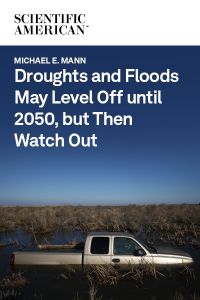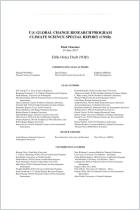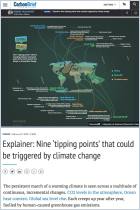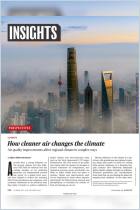Únase a getAbstract para acceder al resumen.

Únase a getAbstract para acceder al resumen.
Michael E. Mann
Droughts and Floods May Level Off until 2050, but Then Watch Out
Strange waves in the jet stream foretell a future full of heat waves and floods
Scientific American, 2019
¿De qué se trata?
A look at why the weather is getting more extreme – and what to expect in the future.
Recommendation
The extreme weather you’ve been seeing around the world in recent years might lead you to wonder what might be in store for the future. Atmospheric scientist Michael E. Mann’s clear description of what’s causing the phenomenon and how it is likely to play out in decades ahead provides valuable context for preparing to deal with future disasters, and suggests concrete actions people can take now to minimize future harm. Though the theoretical physics might be more information than some readers want or need, the take-home message is clear: Reduce greenhouse gas emissions now.
Summary
About the Author
Michael E. Mann is a professor of atmospheric science and director of the Earth System Science Center at Pennsylvania State University. He has written or co-written five books, including Dire Predictions, The Hockey Stick and the Climate Wars, The Madhouse Effect, The Tantrum That Saved the World and The New Climate War.




















Comment on this summary